#Sensory Therapy Tools
Explore tagged Tumblr posts
Text

Effective Sensory Therapy Tools for Speech and Motor Skill Development
SpeechGears offers a wide range of sensory therapy tools designed to improve oral motor skills, speech clarity, and sensory processing. Ideal for both children and adults, these tools help therapists provide targeted exercises to enhance communication and feeding abilities. The kit includes various equipment to address different sensory needs, making therapy more effective and engaging. Explore our collection of Sensory Therapy Tools at SpeechGears and support better therapy outcomes today!
0 notes
Text
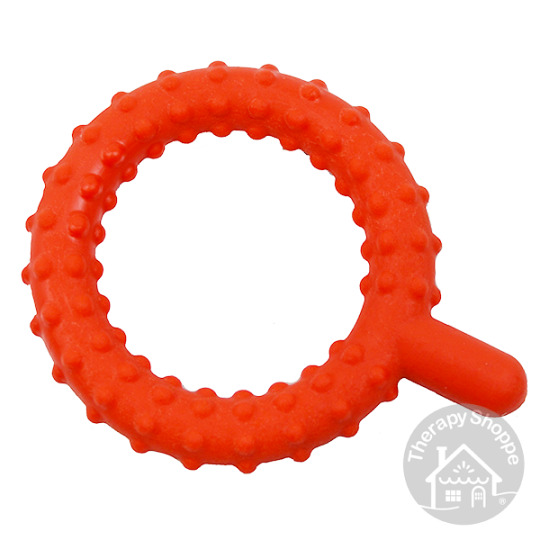
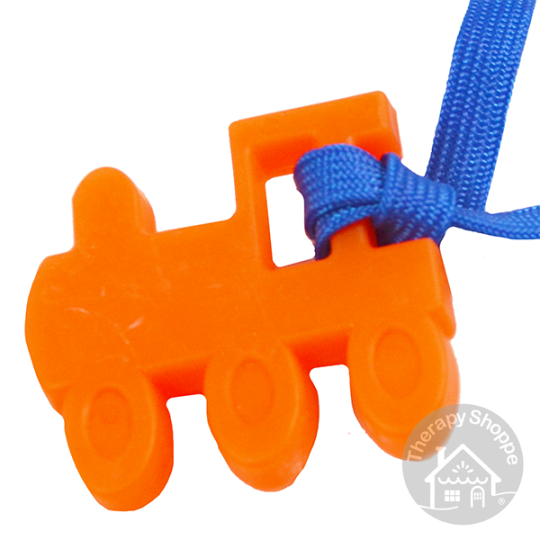

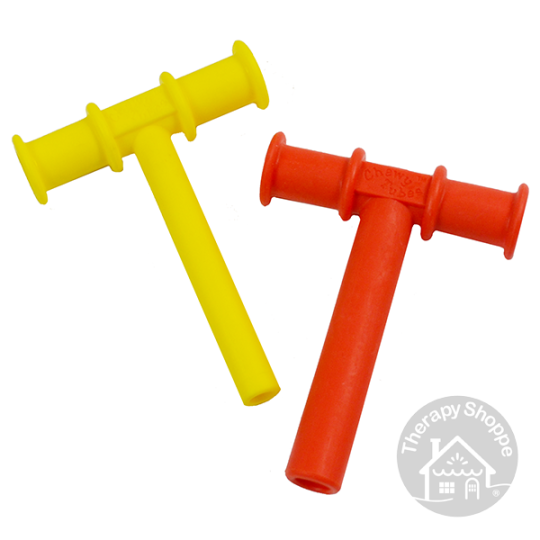
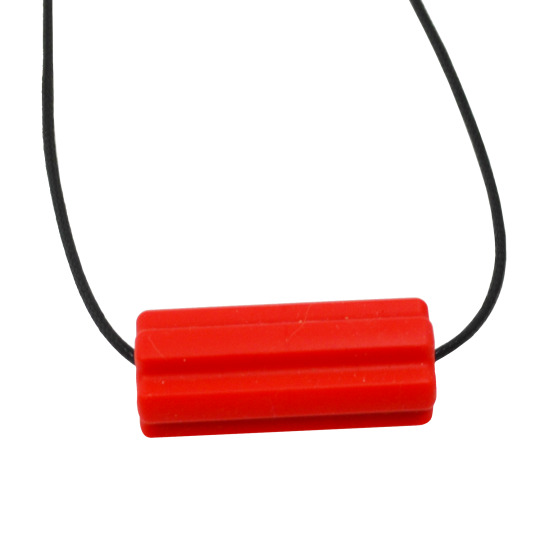
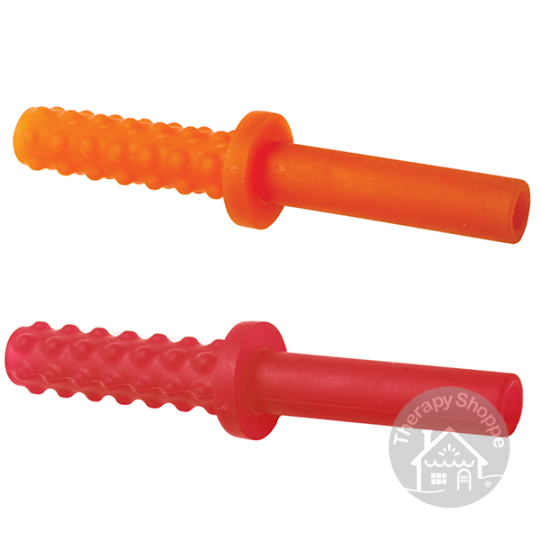
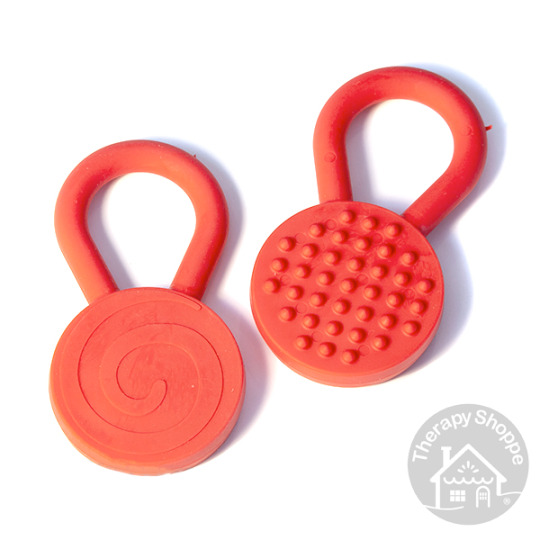
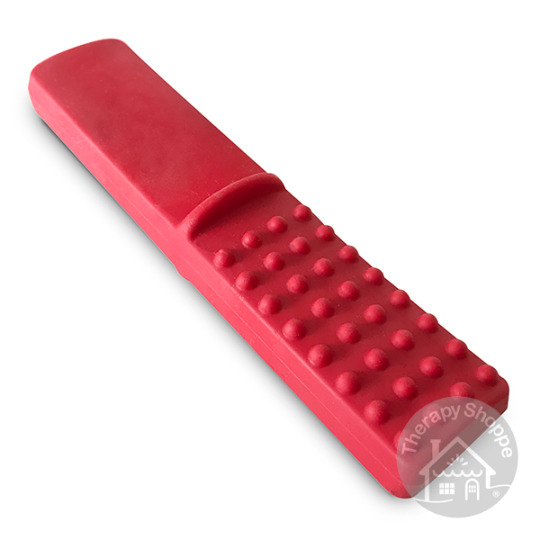

Red/Orange Chewy Sensory Tools
x x x x x x x x x
#therapyshoppe#the therapy shoppe#neurodivergent#autism#neurodiversity#occupational therapy#chewy tool#chewy necklaces#chewy#chewable#oral motor#sensory processing#sensory processing disorder#sensory processing issues#sensory problems#sensory processing sensitivity#actually autistic#autistic adult#autistic things#its the neurodivergency#neurodiverse stuff#actually neurodiverse
15 notes
·
View notes
Text
i cannot find my tangle relax and it’s making me so sad 😭 i went out looking for one at the teacher supply and they didn’t have one. I went to five below and got some of the stupidest fidgets and i lowkey wanna return them. not at all what i was hoping for waaaah
#tangle therapy#tangle fidget#tangle jr#fidget toys#fidget tools#Sensory toys#Yes i am genuinely sad over it too
1 note
·
View note
Text
The TalkTools Recessed Lid Cup is designed to assist children, particularly those with special needs, in developing oral motor skills and promoting independent drinking. Its spill-proof design and recessed lid help control the flow of liquid, making drinking easier and safer.
#TalkTools#Recessed Lid Cup#Special Needs#Oral Motor Development#Independent Drinking#Children’s Cups#Sensory Tools#Feeding Solutions#Spill-Proof Cup#Toddler Cup#Autism#Speech Therapy#Kids’ Products#Safe Drinking
0 notes
Text
Autism Awareness Clothing for Aunts: Spreading Knowledge & Love
The phrase "I'm An Autism Aunt" celebrates a special role within families touched by autism. It signifies a unique bond between an aunt and her autistic niece or nephew, highlighting the importance of extended family support in the autism community.
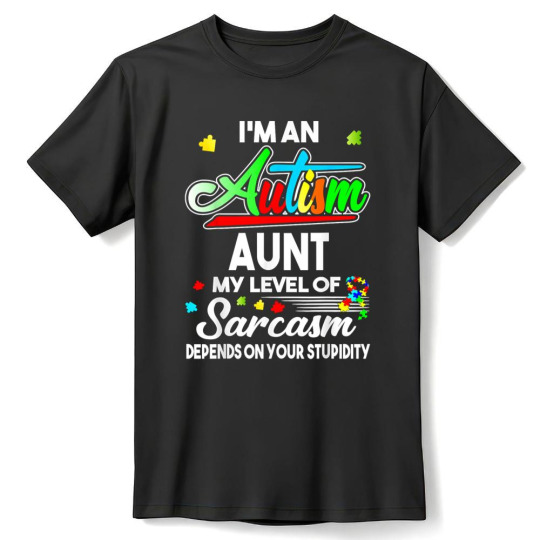
Buy now:19.95$
An Autism Aunt often takes on multiple roles:
Advocate: She educates others about autism and challenges misconceptions.
Support system: She provides respite care and emotional support to parents.
Confidant: She offers a safe space for her autistic niece or nephew to be themselves.
Educator: She learns about autism to better understand and support her family member.
Celebrator: She embraces and celebrates her niece or nephew's unique qualities.

Buy now
Autism Aunts often develop a deep understanding of neurodiversity, becoming valuable allies in promoting acceptance and inclusion. They may attend autism awareness events, participate in fundraisers, or volunteer with autism organizations.
This role can be both rewarding and challenging. It requires patience, empathy, and a willingness to adapt communication styles and expectations. Autism Aunts often find themselves navigating a learning curve, but the deep connection they forge with their autistic family member is invaluable.

Buy now
By proudly identifying as an Autism Aunt, these individuals not only express their love and support for their family but also contribute to broader autism awareness and acceptance in society. They play a crucial role in creating a more inclusive world for their loved ones on the spectrum.
Adult autism gifts are thoughtfully selected items designed to support, comfort, and celebrate neurodivergent individuals. These gifts cater to the unique needs and preferences of autistic adults, focusing on sensory considerations, special interests, and practical support.
Popular options include:
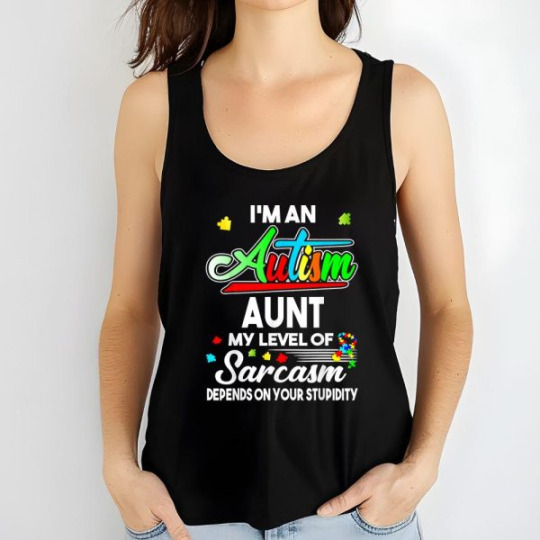
Buy now
High-quality noise-canceling headphones
Weighted blankets or lap pads
Fidget toys designed for adult hands
Sensory-friendly clothing and accessories
Special interest-related books or collectibles
Customizable planners or digital organizers
Stim jewelry or chewelry
Tech gadgets for daily assistance
Art supplies or craft kits
Subscription boxes curated for autistic adults
The best adult autism gifts respect the individual's maturity while addressing their specific needs. They aim to enhance comfort, support self-advocacy, and celebrate neurodiversity. When selecting a gift, consider the person's sensory preferences, interests, and any challenges they may face in daily life.
#Adult Autism Gifts#Autism Aunt Support Gear#Proud Autism Aunt Gifts#Autism Awareness Aunt Apparel#Aunt of Autistic Niece/Nephew#Autism Advocate Aunt Merchandise#Sensory-Friendly Gifts for Adults with Autism#Autism Support Products for Adults#Autism Relaxation Tools#Educational Toys for Autistic Adults#Autism Therapy Equipment#Personalized Autism Gifts#Tech Gadgets for Adults with Autism#View all AUTISM GIFTS products: https://zizzlez.com/trending-topics/hobbies/autism-spectrum-awareness-month/#All products of the store: https://zizzlez.com/
0 notes
Text

Discover a curated selection of sensory integration therapy tools at Speech Gears' Therapeutic Special Kit. Our range of meticulously chosen products aims to provide comprehensive support for individuals seeking sensory integration therapy. From tactile stimulation to proprioceptive aids and vestibular tools, our collection offers diverse options to assist therapists, educators, and caregivers in facilitating effective sensory integration sessions. Explore our assortment today to find innovative tools that promote sensory processing, aiding individuals in achieving improved focus, coordination, and sensory regulation.
1 note
·
View note
Text
The Autism Diagnosis Deep Dive: Navigating Assessments & Next Steps
Part 1: The "Why Bother?" - Reasons for Seeking a Formal Diagnosis
Before we even talk about how to get diagnosed, let's address the elephant in the room: why would someone go through this often lengthy, sometimes expensive, and emotionally taxing process? The reasons are as diverse as autistic people themselves, but here are some big ones:
Self-Understanding & Validation: This is HUGE, especially for late-diagnosed adults. Suddenly, a lifetime of feeling "different," struggling with social cues, or having intense sensory experiences has a name. It’s not that you’re "broken" or "weird"; your brain is just wired differently. That validation can be incredibly powerful and healing. It’s like finally getting the instruction manual to a device you’ve been fumbling with for years.
Access to Support & Services: A formal diagnosis is often the key to unlocking supports.
For kids: This can mean Individualized Education Programs (IEPs) or 504 plans in school, access to therapies (speech, occupational, developmental), and other early intervention services.
For adults: This might mean workplace accommodations, access to specific mental health professionals who understand autism, disability benefits (in some cases), or specialized support groups.
Community & Connection: Finding out you're autistic can open the door to a vibrant, supportive community of other autistic people. Sharing experiences, finding solidarity, and learning from others who get it is invaluable. The online autistic community, especially on platforms like Tumblr, is a force to be reckoned with!
Informing Others & Self-Advocacy: A diagnosis can give you the language and confidence to explain your needs and differences to family, friends, educators, and employers. It’s a tool for self-advocacy.
Understanding Co-occurring Conditions: Autism often travels with friends like ADHD, anxiety, depression, OCD, Ehlers-Danlos Syndrome (EDS), and gastrointestinal issues. A diagnostic process can help identify these, leading to more comprehensive support.
Tumblr Truth Bomb: Self-diagnosis is widely accepted and validated within the autistic community, especially given the barriers (cost, accessibility, clinician bias) to formal diagnosis. This article focuses on the formal process, but that doesn't invalidate anyone's self-discovery journey. Many seek formal diagnosis for the reasons above, even after self-identifying.
Part 2: The "Who You Gonna Call?" - Professionals Involved in Diagnosis
Navigating the medical and psychological world can feel like trying to read a map written in ancient hieroglyphics. Here’s a breakdown of the types of professionals who might be involved:
For Children:
Pediatrician/Developmental Pediatrician: Often the first port of call. They can do initial developmental screenings (like the M-CHAT-R/F for toddlers) and refer you to specialists. Developmental pediatricians specialize in developmental differences and delays.
Child Psychologist/Neuropsychologist: These professionals are often the ones conducting the comprehensive diagnostic evaluations. They use standardized tests, observation, and interviews.
Child Psychiatrist: Can diagnose and also prescribe medication if co-occurring conditions like ADHD or anxiety need pharmacological support.
Speech-Language Pathologist (SLP) & Occupational Therapist (OT): While they don't typically give the primary autism diagnosis, their assessments of communication, sensory processing, and motor skills are vital parts of the overall picture and often contribute to the diagnostic team's decision.
For Adults:
Clinical Psychologist/Neuropsychologist: Similar to working with children, these professionals are often the primary diagnosticians for adults. They'll use adapted tools and place more emphasis on developmental history and self-report.
Psychiatrist: Can diagnose, especially if you're already seeing one for other mental health concerns. They can also help manage co-occurring conditions.
Neurologist: Less common for primary diagnosis unless there are other neurological concerns, but they can sometimes be involved.
General Practitioner (GP)/Primary Care Physician (PCP): Like pediatricians for kids, they can be a starting point for a referral, though their direct experience with adult autism diagnosis can vary wildly.
Value Add Tip: Look for professionals who specialize in autism, particularly adult autism if that's relevant. Ask about their experience, their approach (is it neurodiversity-affirming?), and what the assessment process entails. Don't be afraid to "interview" them!
Part 3: The "Assessment Arsenal" - What Actually Happens?
Okay, this is where it gets dense, but stay with me! The diagnostic process isn't just a quick quiz. It's a comprehensive evaluation designed to gather information from multiple sources.
Key Components (can vary by age and clinician):
Developmental History & Interviews:
For kids: Parents/caregivers will be interviewed extensively about the child's development from birth, social interactions, communication patterns, repetitive behaviors, interests, and sensory sensitivities. School reports and teacher input are also crucial.
For adults: You'll be asked about your childhood (as much as you can remember or gather from family), your social experiences, communication style, interests, sensory profile, and current challenges. Input from a partner or close family member can sometimes be helpful, but the focus is on your experience.
Direct Observation & Interaction:
This is where tools like the ADOS-2 (Autism Diagnostic Observation Schedule, Second Edition) come in. It's a semi-structured, play-based (for kids) or conversation-based (for adults) assessment where the clinician observes social communication, interaction, and imaginative use of materials. It’s designed to create social situations where autistic traits might become apparent.
Tumblr Real Talk: The ADOS isn't foolproof. Masking (consciously or unconsciously suppressing autistic traits) can affect results, especially in girls, women, and AFAB individuals, or those who've learned to "perform" neurotypically. A good clinician understands this.
Standardized Questionnaires & Rating Scales:
ADI-R (Autism Diagnostic Interview-Revised): A structured interview often used with parents/caregivers, focusing on developmental history related to autism traits.
SRS-2 (Social Responsiveness Scale): Measures social awareness, social cognition, social communication, social motivation, and autistic mannerisms. Can be completed by parents, teachers, or self (for older individuals).
CARS-2 (Childhood Autism Rating Scale): Used to identify children with autism and determine symptom severity.
AQ (Autism Spectrum Quotient): A self-report questionnaire for adults.
RAADS-R (Ritvo Autism Asperger Diagnostic Scale-Revised): Another self-report for adults.
Many, many others! Clinicians pick tools based on age, suspected presentation, and their own expertise.
Cognitive & Language Assessments:
IQ/Cognitive Testing (e.g., WISC, WAIS, Stanford-Binet): To understand cognitive strengths and weaknesses. Autism can co-occur with any level of intellectual ability. Important Note: Autistic individuals can have "spiky profiles" – very high abilities in some areas and significant challenges in others. This doesn't always translate well on standardized IQ tests.
Speech and Language Evaluation: Assesses receptive (understanding) and expressive (using) language, pragmatics (social use of language), and nonverbal communication.
Adaptive Behavior Assessments (e.g., Vineland Adaptive Behavior Scales):
Evaluates daily living skills, communication, social skills, and motor skills compared to age-matched peers. This helps understand the level of support an individual might need.
Sensory Profile: Questionnaires or discussions about sensitivities to light, sound, touch, taste, smell, and movement.
Medical & Neurological Examination (Sometimes): To rule out other medical conditions that might explain symptoms.
The Goal: To build a comprehensive picture. No single test "diagnoses" autism. It's about patterns of behavior, developmental history, and how these impact daily life, all considered against established diagnostic criteria (usually from the DSM-5-TR or ICD-11).
Tumblr Pro-Tip for Assessment Day:
Be Yourself: Easier said than done, especially if you mask. But try to be as authentic as possible.
Write Things Down: Beforehand, jot down examples of your experiences, challenges, and traits. It's easy to forget in the moment.
Bring a Support Person (if allowed/helpful): For moral support or to help recall information (especially for adult diagnosis if a parent or long-term partner is involved).
Ask Questions: If you don't understand something, ask!
It's Okay to Be Nervous/Overwhelmed: This is a big deal. Allow yourself to feel whatever you're feeling.
Part 4: The "Big Reveal" - Receiving the Report & Diagnosis
After all the assessments, there's usually a feedback session where the clinician discusses their findings and provides a written report. This report can be LONG and full of clinical jargon.
If Diagnosed Autistic:
The Emotional Cocktail: Get ready for a potential mix of:
Relief/Validation: "I'm not broken! There's a reason!"
Grief: For the life you might have imagined, for past struggles, for not knowing sooner.
Confusion/Overwhelm: "What does this mean? What now?"
Anger: At past misdiagnoses, at people who didn't understand.
Joy/Excitement: About connecting with a new community and understanding yourself better.
The Report: It will outline the tests done, your (or your child's) scores, observations, and how these meet (or don't meet) diagnostic criteria. It should also include recommendations. Ask the clinician to walk you through it in plain language.
If Not Diagnosed Autistic (but you strongly suspect it):
This can be incredibly invalidating and confusing.
Ask Why: Understand the clinician's reasoning. Did they consider masking? Are they experienced with subtle presentations or adult diagnosis?
Seek a Second Opinion: If you feel the assessment wasn't thorough or the clinician wasn't a good fit, you have the right to get another opinion, especially from someone specializing in the autistic presentation you identify with (e.g., autism in women/AFAB individuals, PDA profile).
Remember Self-Identification: Even without a formal "yes," if the autistic experience resonates deeply, your self-understanding is valid. The autistic community largely embraces this.
Part 5: The "Okay, So Now What?" - Navigating Next Steps
A diagnosis isn't an endpoint; it's a signpost. Here's where the journey really begins.
Breathe. Process. Feel.
Give yourself time. There's no "right" way to react. Talk to trusted friends, family, or a therapist. Journal. Engage in your special interests. Whatever helps you process.
Tumblr Hug: You are not alone in this. Many have walked this path.
Connect with the Autistic Community:
This is arguably one of the MOST important steps. Find autistic-led groups online (Tumblr, Facebook, Twitter/X, Reddit, Discord) or in person.
Listen to #ActuallyAutistic voices. Read blogs, watch videos, follow creators. They offer insights, support, and a sense of belonging that non-autistic professionals often can't.
Value Add: This community can help you decipher what "autism" actually means in lived experience, beyond clinical definitions.
Learn (and Unlearn):
Read books by autistic authors. Learn about neurodiversity as a paradigm.
Unlearn harmful stereotypes about autism (e.g., that all autistics are like Rain Man, lack empathy, or are non-verbal).
Explore concepts like masking, burnout, autistic inertia, monotropism, and special interests (or "spIns").
Consider Therapies & Supports (if needed/wanted):
Crucial Caveat: The goal of support should be to help the autistic person thrive as an autistic person, not to make them "less autistic" or "more neurotypical." Avoid any therapy aiming to "cure" or "normalize" autism.
Occupational Therapy (OT): Can help with sensory processing issues, motor skills, daily living skills, emotional regulation. Look for OTs with a neurodiversity-affirming approach.
Speech-Language Therapy (SLP): Can help with social communication (pragmatics), understanding non-literal language, alternative communication methods (AAC), and feeding issues. Again, ensure they respect autistic communication styles.
Mental Health Support (Therapy/Counseling): Many autistic people benefit from therapy to deal with anxiety, depression, trauma (often from navigating a neurotypical world), or to process their diagnosis. Seek therapists who are autism-knowledgeable AND affirming.
ABA (Applied Behavior Analysis): This is a highly controversial topic.
Traditional ABA has been criticized by many autistic adults for being compliance-based, traumatic, and aiming to suppress autistic behaviors (like stimming) rather than supporting underlying needs.
Some newer/modified forms claim to be more child-led and focus on functional skills.
Tumblr PSA: DO YOUR RESEARCH. Listen to autistic adults about their experiences with ABA. If considering it, scrutinize the provider's methods, goals, and respect for autistic identity. Many autistic advocates advise against it entirely or urge extreme caution.
Social Skills Groups: Can be helpful IF they focus on understanding social dynamics and providing tools, rather than forcing neurotypical masking. Autistic-led groups are often best.
Parent Training/Support (for parents of autistic kids): Focus on understanding your child's needs, adapting the environment, and advocating for them, not changing who they are.
Accommodations & Environmental Adjustments:
School: IEPs/504 plans can provide classroom accommodations (e.g., noise-canceling headphones, visual schedules, movement breaks, modified assignments).
Work: Reasonable accommodations might include a quieter workspace, flexible hours, written instructions, permission to use stim toys.
Home: Create sensory-friendly spaces. Reduce clutter. Establish routines if helpful. Honor sensory needs (e.g., specific food textures, clothing fabrics).
Embrace Strengths & Special Interests:
Autism isn't just a list of deficits! Autistic people often have incredible strengths: intense focus, attention to detail, loyalty, strong sense of justice, unique perspectives, deep knowledge in areas of interest.
Special interests are not "obsessions" to be discouraged; they are sources of joy, learning, regulation, and expertise! Lean into them!
Self-Advocacy & Setting Boundaries:
Learn to communicate your needs. It’s okay to say no, to ask for clarification, to leave overwhelming situations.
This is a skill that develops over time, especially if you've spent years masking.
Patience & Self-Compassion:
This is a marathon, not a sprint. There will be good days and hard days. Be kind to yourself. You're learning a new way of understanding yourself and navigating the world.
Part 6: The "Don't Forget This Stuff!" - Final Thoughts & Value Nuggets
Autism is a Spectrum, Not a Line: It's a diverse constellation of traits. "If you've met one autistic person, you've met one autistic person." Support needs vary wildly.
Masking is Real & Exhausting: Many autistics (especially women, AFAB individuals, and people of color) learn to camouflage their traits to fit in. This can delay diagnosis and lead to burnout.
Late Diagnosis is Valid: Discovering you're autistic as an adult is increasingly common and incredibly validating. It's never "too late."
Internalized Ableism is a Thing: You might have absorbed negative messages about autism or disability. Unpacking this is part of the journey.
Celebrate Neurodiversity: The idea that neurological differences like autism are natural variations in the human genome, not disorders to be cured. Embrace it!
Phew! We made it through the deep dive! Getting an autism diagnosis can feel like the end of one chapter and the very overwhelming beginning of another. But armed with knowledge, community, and self-compassion, it can also be the start of a more authentic, understood, and supported life.
What are your experiences with the diagnostic process? Any tips for folks just starting out? Spill the tea in the comments/reblogs! Let's support each other!
#Autism #Autism Diagnosis #ActuallyAutistic #Neurodiversity #Autistic Adults #Autistic Children #ASD #Sensory Processing #Special Interests #ADOS #Mental Health #Support #Self Advocacy #Tumblr Explains #Long Post #Worth The Read #Neurodivergent #Autism Acceptance
118 notes
·
View notes
Text
The Undiagnosed Autistic Girl
It’s funny how when boys have autistic meltdowns, it’s seen as part of their charm, he’s sensitive, he’s just spirited, he needs a little space. He hits a wall and people rush in with support: a diagnosis, a therapist, sometimes even a future carved out with understanding. But when did I melt down? I got a hand clamped around my wrist and someone hissing “Knock it off” like I was choosing to unravel. When I couldn’t brush my teeth because the texture made me gag, my grandmother pinched my nose until I bled, held my mouth open like I was some wild animal refusing to be civilized. And when all that control didn’t “fix me”?
They didn’t ask questions, they gave me medication that numbed me out so completely that I stopped reacting altogether. Not better, just quieter. That’s what happens to undiagnosed girls. You’re not quirky, you’re difficult.
You’re not misunderstood, you’re bad. You’re not struggling, you’re “too much.” And society? It hates “too much,” especially in girls. It punishes you until you shrink, soften, or disappear. I was lucky, I eventually got an ADHD diagnosis. But even then, all I got was a prescription, not support. No tools, no accommodations, no compassion. Just a pill and a patronizing smile, like that was enough. No one ever asked why I was screaming; they just wanted me to stop.
No one ever wanted to know what overstimulated me, what scared me, what made the world feel too loud and too fast and wrong. Boys got therapy appointments and fidget cubes, and understanding smiles. Girls like me got labeled dramatic, handed a pill bottle, and told to calm down. And if we didn’t calm down fast enough? Suddenly, we were the problem. Ungrateful. Broken. Even when the meds didn’t help, just numbed everything until we weren’t screaming anymore, until we were hollowed out and silent, they called it progress. But I wasn’t better. I was sedated. And now that I’m older, I’m unlearning all of it. I still remember the exact moment something cracked open inside me.
It wasn’t a breakdown or a big crisis, it was just one offhand comment from my grandmother, sharp and casual like the flick of a match, and suddenly I was sobbing in the middle of a restaurant, unable to breathe or think. I ran outside, choking on something I didn’t have the words for, and my mom followed, finally asking: “You want to go to therapy?” I still needed medication. I still needed time. But slowly, the fog started to lift. I gained weight. I felt hungry again for food, for life. I felt real, like maybe I didn’t have to disappear just to survive. But here’s the cruel truth: even after all that, I was still too much for most people. Too emotional, too reactive, too weird, too intense. Even after healing, after doing everything I was told to do, they didn’t want me. They wanted a softer version. A quieter one. A smaller one.
That’s what being a woman on the spectrum is like: being punished for existing too loudly, and praised only when you fade.
You don’t get support, you get scolded. You don’t get understanding, you get silenced. You don’t get recognized, you get erased.
You learn to mask before you even know what masking is, trained to be palatable before you’re ever allowed to speak your truth. They call you dramatic, lazy, selfish, rude when really, you’re overwhelmed and doing your best in a world that never slows down or makes room for you. You cry in a restaurant, and they call it a scene. You stim and they say you’re disgusting. You melt down, and they call you manipulative. And even when you finally get a diagnosis, it feels too late because the shame has already taken root, twisted itself around your identity. Medication might help, but it doesn’t erase the years of being told you were the problem. And yet, here’s the good part: we’re talking now. We’re breaking the silence they forced on us.
We’re naming the things they told us to hide: sensory overload, shutdowns, stimming, masking, burnout. We’re finding each other in the margins in comments, blogs, DMs at 2 a.m., and we’re saying: I see you. I get it. You were never too much. You were never wrong. And it’s time we talk about the double standard the “he’s autistic” excuse that only ever seems to go one way. When autistic men cross boundaries, act inappropriately, or harm someone, especially a woman, people rush to defend them: “He doesn’t understand social cues,” “He means well,” “You’re being too harsh.” But when an autistic woman has a meltdown in public, she’s labeled crazy, dramatic, unstable a Karen. When she can’t make eye contact, she’s rude. When she overshares, she’s embarrassing. When she stims or forgets to mask, she’s weird too much.
So let’s be clear: autism is not a free pass to ignore consent, violate boundaries, or cause harm. Being autistic does not mean you can’t learn right from wrong. If autistic girls are forced to sit still, smile politely, and internalize every ounce of shame just to survive, then autistic boys can be taught to respect others. Autism doesn’t excuse harm, and we’re done letting it be used as a shield for men, while women get nothing but blame, silence, and scars.
When I was in high school, I once walked by a guy I thought I knew and gently tapped the top of his head, like a light head pat. I was autistic and didn’t fully understand that boundary, didn’t know that it might come across wrong. But instead of telling me to stop or setting a boundary with words, he strangled me. Full-o,n wrapped his hands around my throat. I panicked, thrashed, punched him in the chest, trying to get free, screaming, “What is wrong with you?” I went over to the security guard after I calmed down, shaking, but in the end, they blamed me because I touched him first.
Not violently. Not aggressively. Just a misunderstood, socially awkward gesture. And somehow, his violent overreaction was more acceptable than my autistic mistake. That’s the kind of world autistic girls grow up in: where our intent doesn’t matter, where our social missteps are treated like crimes, and where our pain is always less important than someone else’s discomfort.
The administration didn’t punish him. Nothing happened to him. Because technically, I touched him first. That was the logic they used, as if a gentle tap to the top of someone’s head justified being strangled in a school hallway. I learned quickly that speaking out would only get me in more trouble, that being autistic didn’t excuse me, but somehow excused him. I still had to see him in the halls after that. And maybe the worst part? My friend, someone I trusted, stood there and did nothing.
Just watched. Didn’t step in. Didn’t say a word. Later, he called me and told me I shouldn’t have touched him or punched him, like it were my fault. I snapped. I screamed at him over the phone for thirty minutes, telling him exactly what kind of hypocrite and coward he was. Told him if he wanted to join the army so badly, maybe he should start by learning how to stand up for his friends. Our friendship was never the same after that. And honestly? I don’t think I ever want to speak to him again.
So an awkward autistic girl gently taps someone’s head, and she’s seen as crazy, unstable, violent, out of control. Meanwhile, autistic boys can shout, throw chairs, even physically assault people, and still get excused because they’re “working on their coping strategies.” The double standard is real, and it’s brutal. Women and girls on the spectrum are held to impossible standards of politeness, emotional regulation, and social performance. And it doesn’t stop after high school. It follows us into adulthood, where the bullies become our bosses, and we still get pushed out, punished, and pathologized for not being “normal” enough.
We’re still denied help. Still mislabeled. Still gaslight. So if you’re a woman with ASD reading this please hear me: you are not broken. You don’t need to be fixed. You just need different accommodations, different support, and a world that stops pretending one-size-fits-all. Men get coddled for their diagnoses. We get discarded. You’re not wrong for feeling like you were treated worse, because you were and are. Don’t let them gaslight you into thinking you’re crazy, you’re not. You’re surviving in a world that was never designed for you.
#women on the spectrum#autism#asd#adhd#feminist#radical feminism#radblr#two cents#ref#boop#radfemblr#radical feminist community#radical feminist safe#female solidarity#feminism
48 notes
·
View notes
Text
I'm not immune to the otome game but also I think I'm one of the few autistic people who like the funny man so I'm making autistic!reader × Casper headcanons now okay.
Okay so for starters; when you talk to him about your special interest, he's both enamored and impressed by all the knowledge you hold for a specific topic. Perhaps you really aren't the fool he thought you were.
At first he finds himself irritated by your ramblings (but let's be real, it's just because he's annoyed by you in general) but overtime he can't help but lose himself in the way your voice raises almost a full octave when you're talking about your special interest.
Out of everything, Casper finds it easiest to understand your sensory input and how you can get overstimulated at even the most mundane things. It may not be the same, but being weakened and overwhelmed by things that can't be perceived by the naked eye is something he knows.
He ends up having whatever sensory tools you need on hand, whether it be a comfort item, fidget toys, or noise-cancelling headphones. Anything to help his sunshine.
When it comes to stimming, he doesn't really understand it, but he doesn't mind it. He's not going to reprimand you for rocking back and forth, but he might pout if your stims involve touching him (in which we know is just him being flustered, secretly being obsessed with your hands running through his hair or drumming against his shoulders).
He's pretty physically strong, so he'd be happy to oblige in helping with compression therapy. He might get confused if you ask him to lay on top of you in bed, but hey. He gives nice, tight hugs. Nice and secure :]
That's all for now byeee
76 notes
·
View notes
Text
Resident Evil Characters with A Neurodivergent Partner

Chris Redfield
Chris has no idea what he’s doing. Like actually. The kind of man to white-knuckle his way through diagnosed PTSD. But that’s not gonna stop him from trying to be the best partner he can be.
Does amazing when you tell him you do best with clear communication. You mean he doesn’t have to try and figure out what non-verbal signals you’re trying to give him? Because you’ll just tell him? He’s delighted.
The kind of guy to keep a list on his phone with all of your preferences and needs. Like, down to the minutiae that you were pretty sure only you cared about. Has notes like “likes x brand chips, but NOT y flavor. Do not buy y flavor. You’ll make them cry”
Fucks up a lot early on in your relationship, but he just needs a little guidance
Jill Valentine
Jill will be your #1 defender in everything. Like, everything. Even if she doesn’t get it. Goes off on anyone who gives you a hard time for your accommodations without a second thought.
Jill is also reading up on everything. After you explain things to her she goes out and buys every book she can find on your diagnosis, even if she knows she won’t have time to read them all.
A safe place to lose control. Jill takes meltdowns and bad episodes in stride (not that she can extend that same care to herself, but I digress), and is always prepared with regulation tools when necessary.
Makes no secret about the fact that she hates anyone who’s ever made you feel bad about your diagnosis and will fight them if they ever meet. Yes that includes family members. It’s on sight with this woman.
Rebecca Chambers
She’s already got a life of being autistic under her belt, she’s got this.
Knows all the lingo, all the best places to get accommodation tools, and already has the menu for that new restaurant printed out for you to look over together.
The kind of person who won’t bother anyone else about her own needs, but the second someone she cares about isn’t getting their needs met, she’s making sure that changes.
Keeps basic AAC cards and stim toys in her bag at all times. Will add noise-canceling headphones, safe snacks, chew stims and anything else you can think of if asked.
Leon S. Kennedy
Swears he’s neurotypical, but you’re pretty sure he’s undiagnosed with something.
Happy to provide deep pressure therapy anywhere and everywhere. Just pulls you over silently when you start getting overwhelmed/anxious and squeezes you in a tight hug. Or flops his whole body on top of you like a big dog if you can lie down.
Great at working through meltdowns and bad episodes. Like actually amazing. Always meets you right where you are and works down from there.
Keeps a close eye on you while out in easily overstimulating situations so he can see if things start to get to be too much. The kind of guy to show up from across the venue like “hey I saw your body language change minutely into something uncomfortable, do you need a sensory break?”
Definitely spends way too much time and money on your special interests and hyperfixations. Like, way too much. Shows up after every mission with something related to it as a gift (even if he just grabbed it from the airport gift shop) and gets overly excited to take you out on dates related to it.
Claire Redfield
Like Rebecca, she’s got this shit down. No, she doesn’t have personal experience, but she has been in therapy since she was a child and is legitimately excited to learn how best she can help you.
Hits you with a “tell me more” or “how can I help?” anytime things start to get bad or overwhelming. No, she won’t take “I can handle it” as an answer. You’re in this together or not at all.
If you live together, she’s taking on home renovation projects constantly to make things more accessible. Stim-friendly furniture, low-sensory areas, clearly marked cabinets or open shelving to be able to see important things, a big wall calendar with anything important going on. Just ask and she’s going to the store to get supplies. DIY queen.
Calls or texts on a set schedule whenever she’s away for work so that you’re able to stay connected. Also has your number set to come through no matter what with a loud ringtone so she doesn’t miss it if you reach out, even if she’s asleep.
Will throw hands for you. Big “excuse me, they asked for no pickles” energy. Has actually gotten you both kicked out of establishments because she wouldn’t let someone’s ableism go. She’s not sorry.
Carlos Oliveira
Co-regulation king. Is constantly pulling you out of any thought spirals with silly shit to help you feel better.
Please info-dump to him. He says he just loves to listen to your voice, but also secretly finds it fascinating.
Another lover of deep pressure therapy. Big squeezes and bear hugs all the time. However, this does mean that he’s not the best person to be around if you’re touch-adverse, because he just can’t help himself. He loves physical contact.
Like Chris, probably fumbles a lot early on, but he takes care of any mis-steps fairly quickly so long as he’s told what he did wrong.
Probably the kind of dork to wear a “I love someone with (diagnosis)” t-shirt while out with you, despite the fact the he knows it makes you cringe
#resident evil#leon s kennedy#leon kennedy#re4 remake#chris redfield#re2 remake#carlos oliveira#jill valentine#claire redfield#rebecca chambers#neurodivergent#actually autistic#autism#adhd#audhd#ptsd#tried to be as inclusive as possible but my personal experience is with autism so it does lean a little more that way
38 notes
·
View notes
Text
Creating a Cozy Corner


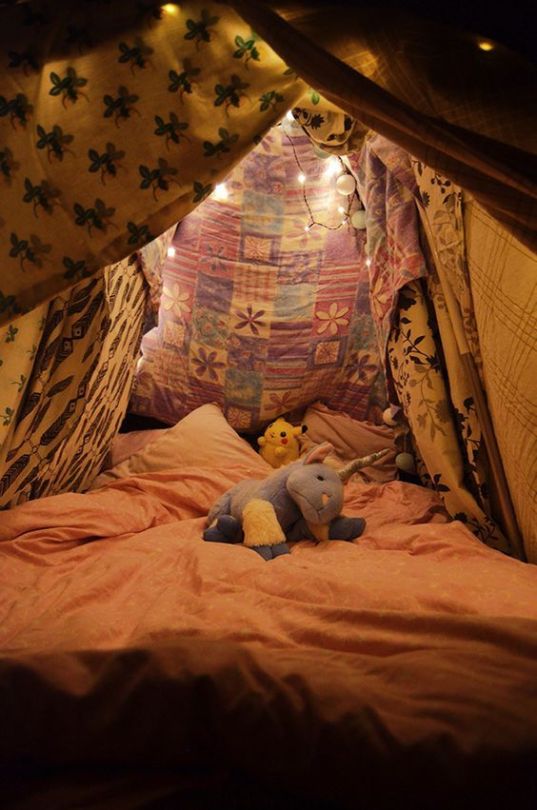
I am of the opinion that if you have a place to live long term, at least one section of it should be specifically designed to be as cozy as humanly possible. Preferably all of it, but hey, baby steps. Here's a step by step guide if you want to make one, but are unsure how.
1. Decide what you want to do in your cozy corner
What you want out of your cozy corner will determine where in your house it goes, how big it is, and what you'll fill it with. It can be a place to do a hobby or something you don't typically like doing, or to go to when you're feeling a particular way.
For me, it's a place I go to when I'm overwhelmed or scared, so I knew the atmosphere had to make me feel safe. I feel safest in small spaces and corners, where I can see the whole room but people can't see me from the door.
2. Find a place that suits your needs for it to go
Is your cozy corner for reading? maybe the bedroom or wherever your books are. Working out a la Cozy Cardio? Maybe somewhere in the living room. If you want to cozify your self care routine, make your bathroom cozy!
Mine is between the foot of my bed and the wall, because when I have nightmares the last thing I want to do is go to a separate room.
3. Structural work
Depending on how big your space is, what it's for, what the room already looks like, whether you're renting, and so on, this will vary wildly. Some ideas include installing bookshelves, painting the walls, or getting a kids' teepee style tent to get cozy in. Or, you could just decorate the whole room to be a sanctuary.
My dad helped me install a shelf and put a plastic board in between the bracket and the shelf top, then bent it down and attached it to my bedframe. This created a little cave-like space for me to sit in.
4. The fun bit!
Decorating!!! Put whatever you want in there. I would recommend at least 2 sensory things (such as lighting and scents), 2 activities, and 5 soft things for relaxation. Some ideas include fairy lights, sunset lamps, scented candles or wax melts, sensory tools, something soft to sit on, cozy clothes you can put on when you're in there, nostalgic toys, equipment for your activities such as a walking pad or a musical instrument, snacks, books, a projector for movies, the list goes on and on!
Since mine is on the floor, I got a large memory foam dog bed for the bottom, then stacked extra pillows and blankets. I set my weighted blanket nearby, and put some coloured pencils and my therapy journal off to the side. I finished it off with some stuffed animals and children's books about loving yourself and handling big emotions.
5. The takeover
I will warn you, though. Making a cozy place that makes you feel good runs the risk of you wanting to make your entire living space cozy.
I'm in the middle of cozifying my bathroom and reading corner, with no signs of stopping at that.
#becoming her#dream self#cozy corner#book nook#cozy cardio#sensory room#interior design#interior decorating#dopamine decor#op
27 notes
·
View notes
Text
🍼 What is a Reborn doll?
A reborn doll is a hand made art doll that resembles a human infant with as much realism as possible. But fantasy ones exist, such as aliens, werewolves, elves, even vampires or the grinch.
🍼 Why adults would play with dolls?
(texte under here are from different articles and textes from medical sites and mags)
🍼 Like weighted blankets, weighted dolls apply gentle pressure. This deep pressure therapy can help reduce anxiety, calm heart rate and breathing, and provide a sense of comfort. Reborn babies can stimulate social interaction in people with autism.🍼
🍼 There is considerable evidences suggesting that reborn babies can be beneficial for people with autism. For some, the soothing presence and weight of a reborn baby can help reduce anxiety and promote calmness. Additionally, caring for the doll can help develop social and emotional skills.🍼
🍼 Their effects extend beyond mere physical comfort. A study found that over 70% of participants using reborn babies reported reduced stress and anxiety.🍼
🍼 Reborn babies, which first appeared in the 1990s, have become valuable tools in emotional therapy. Psychologists explain how these lifelike dolls can evoke feelings of comfort and responsibility. 🍼
🍼 Furthermore, research has shown that 70% of users use them as a means of calming down during complex emotional turmoil.🍼
🍼 Reborn babies are used in therapy to provide comfort and reduce stress. Studies show a significant decrease in cortisol and an increase in oxytocin in users. Testimonials reveal their positive impact on managing grief, anxiety, and post-traumatic stress disorder. 🍼
🍼 The mental health benefits of reborn babies are numerous. They reduce anxiety and stress in those who care for them. These dolls can also help those with attachment issues or past trauma. Science is also beginning to take a closer look at these dolls. Studies show that interactions with reborn babies increase serenity levels. Recent research demonstrated a significant decrease in cortisol, the stress hormone, in participants. Furthermore, using reborn babies helps create a beneficial emotional bond. This unconventional method continues to prove its usefulness in the therapeutic field. 🍼
🍼 The soft texture and realistic features can be comforting for people with sensory sensitivities, like autistic children and adults. 🍼
🍼 Some therapists recommend reborn baby dolls. It is a form of therapy because it stimulates the system and releases certain hormones and natural instincts. This helps people heal gradually, rather than feeling a great emptiness. 🍼
🍼 These therapeutic dolls can even be effective in calming someone with significant behavioral issues or high levels of agitation. Reborn baby dolls are often weighted to feel like a real baby, which can provide immediate comfort. 🍼
🍼 Reborn baby dolls have many therapeutic benefits: they can help combat loneliness, reduce anxiety, provide comfort, distract, and even help some people leave the house. 🍼
🍼 Doll therapy can be extremely effective for people who are anxious or agitated. 🍼
🍼 Holding a reborn doll can provide a sense of security, similar to holding a favorite comfort blanket or stuffed animal. A therapy doll can also provide a sense of companionship, especially for someone with anxiety who may have difficulty being around other people. 🍼
🍼 In my case:
🍼I do have thoses dolls for therapy. I'm not just a weird adult playing doll. I have a lot of disorders like auDHD, C-PTSD and anxiety disorder among others, see my profil description. I was also in the procedure to have a "single mother" medically assisted pregnancy but at the very last time, after doing all the exams and everything, it have been refused because I am "too fat". Some may think it's stupid but to me, it was as if I lost a baby. It's not exactly grief but it's close.🍼
🍼And I can confirm everything quoted above. I feel less stressed and more happy.🍼
10 notes
·
View notes
Text
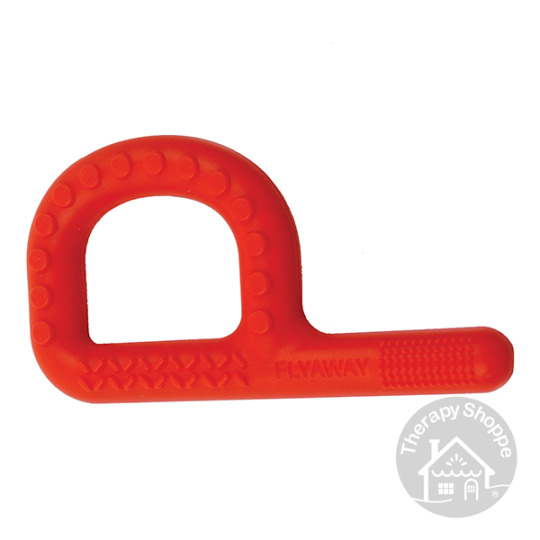
Textured Loop Chewy
#therapyshoppe#the therapy shoppe#neurodivergent#stim toy#neurodiversity#autism#actually autistic#sensory#oral motor#chewy tool#chewy
8 notes
·
View notes
Text
long rambly unorganized post ab sensory regulation (probably hard to read cause i didn’t separate anything into paragraphs and it’s just a mess overall cause i’m just yapping to myself)
my sensory seeking behaviors are going sicko mode rn it’s annoying but also kinda funny cause i’m doing the most random stuff to regulate but it’s also annoying cause it’s hard to get enough input. The oral sensory seeking never feels satisfied even if i’m eating crunchy foods or chewing gum. It helps for a little bit. Tonight i went through different foods in a row to see if it’d help but no. I couldn’t even taste my ice cream just barely felt how cold it was. I am chewing gum and that’s the best solution i have right now. I’m also listening to music w my weighted blanket while humming singing and rocking. It’s so weird cause i have been latched onto pb&j’s and cheetos this week at home and work lunch. I was craving my cheetos for that proprioceptive oral sensory input today. But i went into the fellowship hall to see my mom and i got a cookie and some cake and when i was eating lunch i didn’t want my cheetos anymore and only wanted those soft foods. But tonight i was craving crunchy foods. Yet somehow the gum i have been chewing the past few hrs has been doing the trick and i don’t even like gum all that much. Maybe it’s the strong flavor? Idk but as u can tell i am a huge gustatory sensory seeker i always crave specific items due to flavor, i love lots of flavor and mixing of textures with some foods. Other times, though, i will only eat something in similar flavor or texture of what i had just eaten - like today at lunch i was only craving sweet and soft foods bc i had my pb&j and then only wanted to eat the soft desserts.
I need lots of input to regulate and it’s so weird to me because since i’ve not been working i haven’t had to stay on top of anything. I was pretty regulated i guess but also kinda not very in tune w my sensory needs. I wasn’t having a ton of overstimulating/sensory overload situations. I did make sure to use my NC headphones in loud places and i guess i used food to regulate but for a while i stopped using any of my fidgets or other things to calm my body down. But yeah now that i’m working things have been so hard to adjust to and so my body is trying to process all of it and it’s unsure of what it wants so i am just sensory seeking WAY MORE than usual and i’ve always been a sensory seeker anyways. I was that way as a kid and i’m an avoider with sound and light and vestibular but most everything else i am a seeker. Always craving input and never really satisfied. I mean like some days i will feel regulated and it’s just trial and error. Like especially between the senses and with certain ones - let’s take the oral sensory input for example: - i overeat due to sensory seeking so i’m looking for other ways to get in that input. I know now that proprioception is linked to oral sensory input so i am looking for ideas on how to get those two in at the same time. I also crave proprioceptive input almost constantly so i think that’s why the gum is helping me so much. Gonna look into harder to chew foods and blowing bubbles. My weighted blanket is interesting because sometimes i guess if i’m understimulated or unable to even tell what’s happening in my body in that way/in space, i can’t even feel the blanket. I’ll have to fold it in half over my legs. It’s weird cause i gotta be doing a lot of things at once throughout many sensory systems to feel regulated. I will say though that it is very fun and calming for me and i get better sleep/have better days. A lot of the time i can’t feel if i’m overstimulated until i’m ab to be in sensory overload. So i’m trying my best to learn how to manage it. I’m taking my research seriously and trying to incorporate these into my life and making time to rest usually before bed and after work. I went in a quiet room to eat my lunch today and that was awesome. Been humming and singing more for the vibration feeling and it’s awesome. These are tiny adjustments but they’re making a huge impact on my overall well being . I’m trying to slow down and see what my body needs to feel rested even if i’m not laying down. It’s so relaxing. I have more energy, my mood/communication abilities are up and my mental health is improving significantly. I can’t forget ab being in the sunshine. It’s been so nice along w the ways i regulate my body’s needs. I even sing/hum to worship music while doing all of that outside and it’s so awesome!!! But yeah these are just some examples and i have been watching a lot of videos on the Harkla youtube channel for some ideas and replacement techniques for things i usually do that don’t exactly help but i’ve been so used to them. Eventually i want to go to OT if i am able cause i know it’s not always safe to try it at home and in person therapy is always best for this kind of thing but i’m learning and applying what i can! I have built a routine this week around the videos and taking time to help myself and so i guess that has inspired this post :)
#Sensory input#sensory integration#sensory regulation#sensory needs#sensory seeking#sensory seeker#feastingonchrist#sensory processing#sensory issues#sensory diet#Proprioception#oral sensory input#proprioceptive input#weighted blanket#sensory tools#fidget toys#tangle therapy#Needoh#This is why i got dx level 2 with the sensory stuff huh 😭#I didn’t think it was this complex until now bye
0 notes
Text
What NeuroLearn Is
(And why I’m building it)
NeuroLearn is an educational project for neurodivergent people, built by one.
I’m Laura 👋🏻 I’m autistic, ADHD, parent to neurodivergent kids, and someone who got very tired of advice that didn’t apply to actual brains like mine.
This isn’t some big organisation or polished brand. It’s just me, building what I needed (and still need):
• Real tools for emotional regulation
• Support with unmasking, without the “just be yourself!” fluff
• Honest insight into burnout, overwhelm, and sensory reality
• And things that actually work for neurodivergent learning
I’ve created courses, toolkits, and posts around topics like:
• What masking costs us (especially women and girls)
• How to regulate without feeling fake
• Parenting ND kids without guilt, shame, or behaviour charts
• And how to rebuild identity after years of people-pleasing
This isn’t therapy. It’s not “one-size-fits-all.” But I think there’s something for everyone.
It’s just what I’ve learned, lived, and tested, shared in ways that make sense for people who think in spirals and colour and chaos.
If that’s you, I hope it helps.
If it’s not, I hope it helps someone you love.
In addition to the above material, I also considered what else may be of use & I’m currently working on making it all look the part: I home educate one of our ND kiddos. I know exactly how hard it is to get them to concentrate on anything at all, never mind not get distracted.
Soon, I’ll have built out an ND friendly range of educational modules, complete with activities, tasks & questions to answer that don’t boggle the brain.
– Laura | NeuroLearn
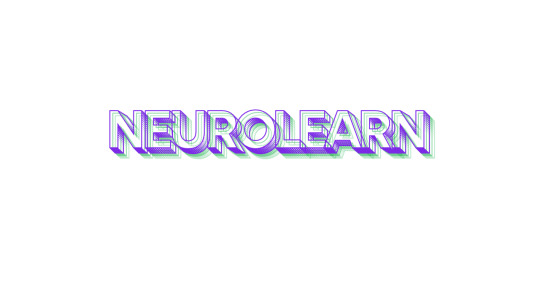
#actually adhd#adhd brain#adhd inattentive#autistic adult#neurodivergent#autistic community#home education#learning#courses#adhd#autism#neurodiverse stuff
9 notes
·
View notes
Text
Team Dark and weighted blankets.
Rouge has a weighted blanket in her closet. It's old, ripped on one corner, its beads long since spilled out onto floorboards of houses that are no longer homes. She used to hide under it, before she went to the therapy to treat the anxiety that plagued her. Now it's a relic, a reminder of her progress. She doesn't need it anymore, she tells herself, but she can't bring herself to get rid of it.
(She takes bubble baths instead. The warmth and weight of the water are a decent replacement.)
But then a neighbor sets off fireworks and now Shadow is hyperventilating on the floor of the living room. She sprints to her closet. She tugs the blanket from beneath the shoe racks, drags it across the floor (because she forgot how heavy it is all bunched up like this,) and lays it over him.
He doesn't take it off for the next two days.
Rouge comes home with a new one and leaves it folded beside the couch. Shadow insists they don't need to have it out. For a moment she listens. She puts it in the pantry. The next day they wake up to find it's been thrown over the back of the couch.
"USE EVERY TOOL AT YOUR DISPOSAL TO REGULATE THE SENSORY NEEDS OF YOUR PRIMITIVE MEAT BRAIN." Omega replies when asked.
The next time it's used is after a long day. Shadow slides onto the couch. Rouge ducks into the bathroom and Omega stops by his room and when they return he's got the blanket spread over him. Rouge jumps on the cushion next to him and chides him for being a blanket hog before sliding under it as well. It's a tight fit, the edge of the blanket only covering half of her. Suddenly Omega leaves the apartment and they spend the next fifteen minutes worried sick until he returns with a new blanket hanging heavy from his grasp. He tosses it onto Rouge, knocking the wind out of her and earning laughter from Shadow.
It's around this time that the two of them finally convince Omega that, yes, he can sit on the couch. No, it's not a sign of weakness or a show of tenderness or anything else that might compromise the image of an Ultimate Robot to join one's friends on the couch cushions. The trusty couch creaks, but holds.
And Shadow comes home with another blanket, this one sized for a queen bed, which neither he nor Rouge own.
"I DO NOT REQUIRE SUCH A PATHETIC FABRIC DEVICE. I DO NOT GET COLD. ADDENUM: I AM INCAPABLE OF REGISTERING COMPLEX TEXTURES ANYWHERE BUT MY HANDS. THERE IS NO BENEFIT-"
Shadow throws the blanket over his legs and he stops. Unlike the flimsy, unweighted blankets that used to occupy this living room, Omega's cruder pressure sensors can register the force of this one. The constant yet gentle registration of pressure keeps bringing his awareness out of his own processor and back to the external world.
It is. . . grounding.
(He calls it "tolerable" but Rouge sees him take the blanket to his room at the end of the night.)
Soon there isn't a single normal blanket in the apartment anymore. Any old ones with sentimental value get stuffed in Rouge's closet, and have been retrieved only once since.
(After a long day of saving the world from disaster, Sonic decides to crash at their place. One problem: he hates weighted blankets. He's known this since he got Tails one. The pressure makes him feel trapped. Omega told him "TOUGH LUCK" but Rouge took pity and dug out the normal ones.)
Just. . . Team Dark and weighted blankets.
235 notes
·
View notes